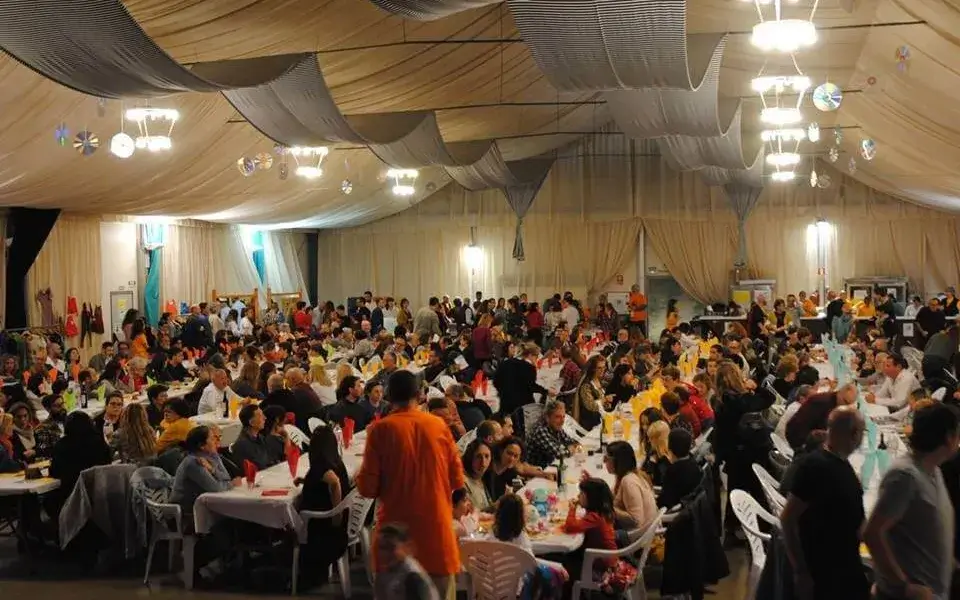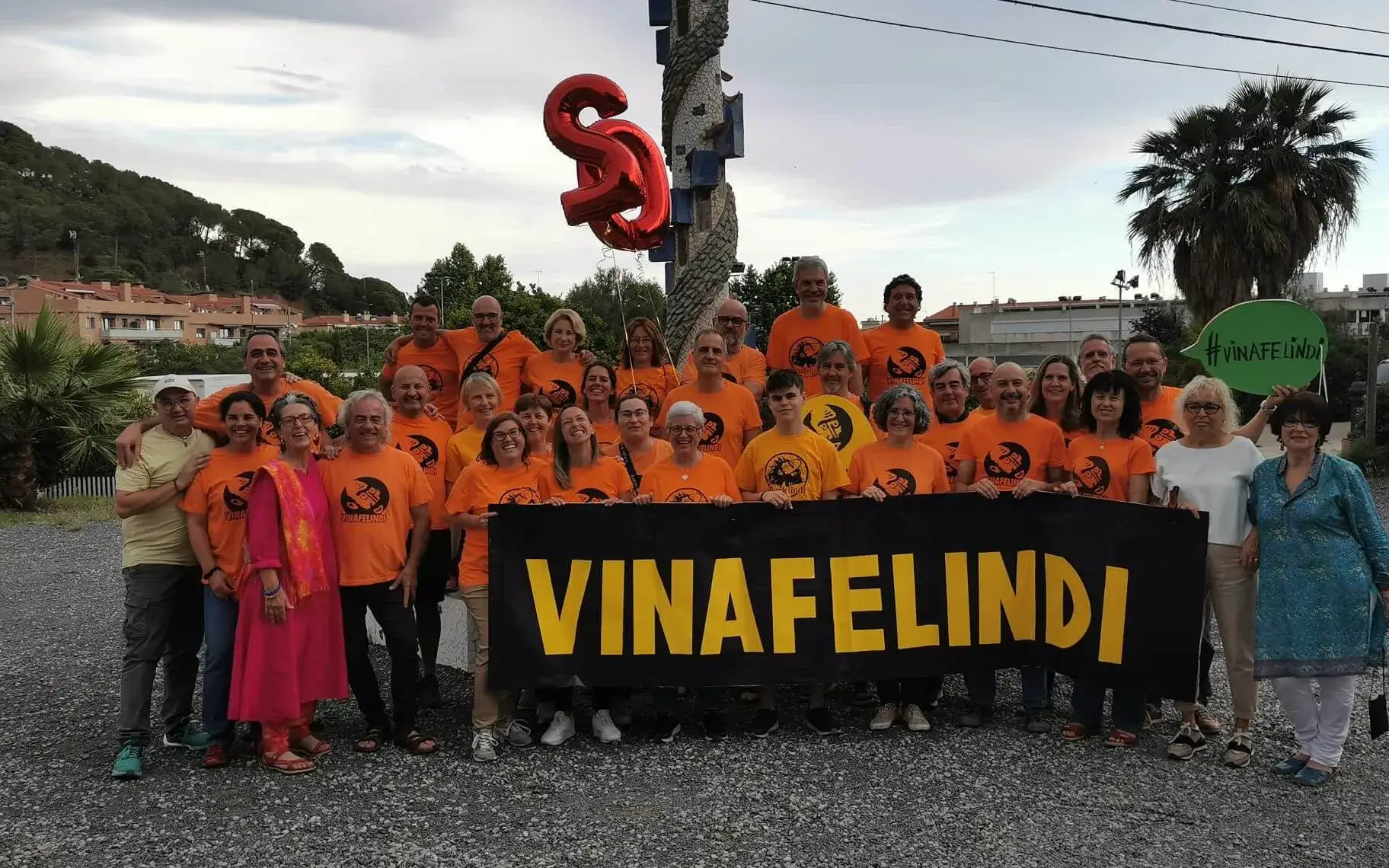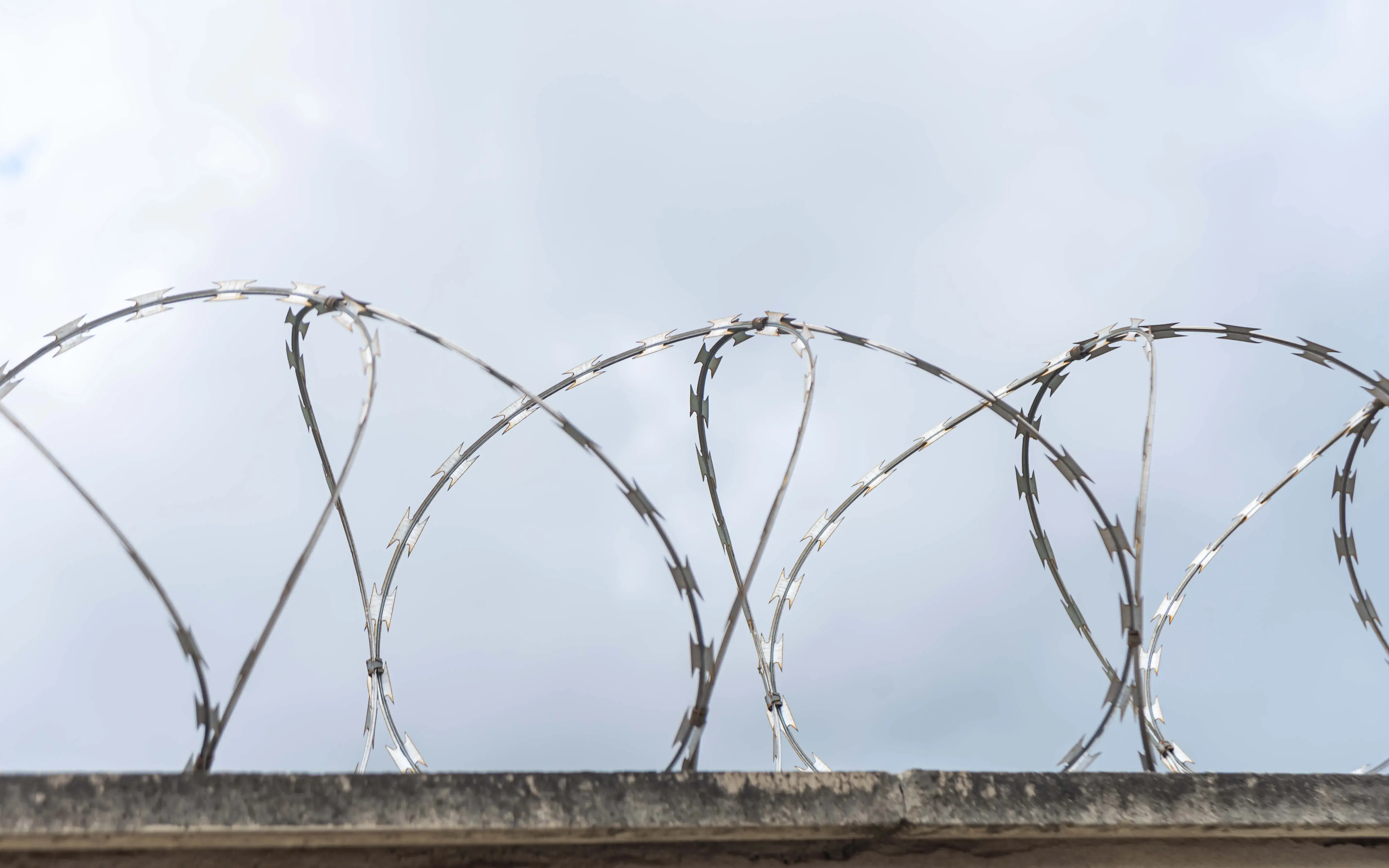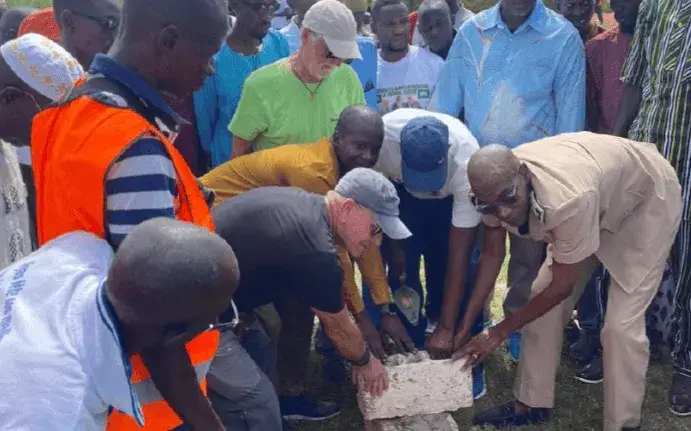Tomàs Jover: “Hopefully it were possible to eradicate hunger in the world and we could stay at home bored”
Gea XXI has been working for almost twenty-five years to change the lives of the most needy people in India and Ethiopia through educational projects. With one of these, it has prevented the closure of a school, which has now doubled the number of students.
In Greek mythology, Gaia is the goddess of the Earth — from whom all the gods and the first humans arise — and the embodiment of the force of nature and wisdom. In honor of this deity, the name Gea XXI emerged, an organization born in 2001 in Canet de Mar (Maresme) to help the most disadvantaged people in India and Ethiopia. Over the years, with the crisis that affected our country in 2008, they began to collaborate with the social services of Canet to assist their most vulnerable neighbors. To raise funds, they organize the Vinafelindi, a large dinner and raffle, as well as other activities like a Holi festival and second-hand book sales.
From Xarxanet, we spoke with Tomàs Jover, president of the organization, to learn about their work. One of the most important tasks, Jover explains, is “to bring and transmit hope” amid all the negative news in the media: “By only talking about the negative things happening in the world, they are robbing us of the most important thing we have as human beings, which is hope. We must not let ourselves be defeated, we must not sink into all this negativity,” he insists.
Let’s start by talking about your beginnings. Who founded Gea XXI?
We were a group of people who, seeing the things happening in the world, wanted to contribute our grain of sand, if possible, to make this complicated world we live in a little better. None of us are rich people with money to spare who don’t know what to do with it: in 2001, we were paying our mortgages and working to make ends meet, but we realized that there were places in the world where, with very little, you could help many people and change many lives.
We were lucky enough to meet Vicente Ferrer, who was a man that really got us going and motivated us tremendously to do everything we’ve been doing over these twenty-five years. Meeting him was like a revelation because we realized that there are people who dedicate their lives to others and whose leitmotif is their work and life devoted to helping those who are most vulnerable and those who haven’t had the luck we’ve had to be born where we were born.
What did Vicente Ferrer convey to you?
Vicente Ferrer was absolutely clear that all people born in abundance weren’t born there by chance, that all of us born into abundance are meant to bring it to the places where it is lacking. And he conveyed this philosophy very clearly through his example of life and everything he was doing in India.
From there, we began to mobilize, to carry out activities, to do things that could allow us to raise resources and use them to fulfill that leitmotif that Vicente passed on to us — that we weren’t born here by chance and we must be aware of that.
One of your goals is to help reduce hunger in the world. How do you work to achieve that?
Eradicating world hunger is an unachievable goal. Besides, we are very small, we’re a volunteer-based organization, not professionals. The distinctive trait that makes us very proud of everything we’ve accomplished is that everything we’ve raised has gone to the vulnerable families we’re helping — whether in India, Ethiopia, or right here in Canet (since 2008, we’ve also collaborated with social services). We haven’t had to divert even a single euro to pay salaries, infrastructure costs, or any kind of expenses: every euro we raise goes to one of the vulnerable families we’re helping, wherever they may be.
The goal of ending world hunger — if only it were possible, and we could stay at home on the sofa, bored because there’s nowhere left to help. But at the very least, we have this awareness of being able to say, “I go to bed at night with a clear conscience, we’ve done everything we could.” If others come along and ruin it, that’s on them and their conscience — they know what they’re doing. But we try to be at peace with the fact that we’re doing everything we can.
"In the twenty-five years we've been active, we have helped around twenty-four thousand people, almost twice the population of Canet".
You said, "we’re very small," but the important fact is that you are helping other people.
We never would have imagined being able to help so many people: in the twenty-five years we've been active, we’ve helped nearly twenty-four thousand people. Canet has fifteen thousand inhabitants, so soon we will have helped twice the population of our town. With numbers closed at the end of 2024, it's exactly 23,682 people; of those, more than half never need help again.
With the support they received, they’re now moving forward, they are self-sufficient—either because they are developing their own businesses, or because, through their studies, they’ve been able to completely change their lives and get good jobs. On top of that, you have to add that all these people are helping others.
And it's like a chain.
Vicente Ferrer used to say that a good deed has no end because everyone who receives it, when they get the chance, reproduces it out of gratitude. So, it becomes an infinite network whose reach you can no longer trace.
How did your international projects begin?
We started by collaborating with the Vicente Ferrer Foundation, and from 2001 to 2010, all the money we raised went to very specific projects of this organization that we really liked: they allowed families to receive small microloans with which they could develop small businesses, usually in livestock farming, and this made them self-sufficient. Starting in 2010, we began to realize that we could carry out many things ourselves, and we started to diversify.
For example, the president of India, a Hindu fundamentalist, is dismantling everything that has nothing to do with Hinduism, such as religious congregation schools that are not Hindu. He removes their education agreements from one year to the next, and the poor families in rural areas cannot afford the fees. We came across a school that was about to close for this reason, and we set up a scholarship system for the families and saved it. In fact, the number of students has doubled.
Is your work focused on the field of education?
The fact that we ended up choosing the educational field was due to an experience we had in 2007 in Ethiopia. We had heard very good things about a Spaniard who was running an orphanage in Addis Ababa, so we went there, and we were deeply disillusioned because the punishments this person inflicted on the children to maintain discipline were tortures. They were very, very, very harsh punishments and, moreover, we discovered that he also abused the older girls. We had to report it; in Spain, Judge Grande-Marlaska took the case, and when this person saw that things were getting complicated here, he requested to transfer the trial to Ethiopia.
There, they declared the trial null due to lack of evidence, and he returned to running the center. He expelled the children who were brave enough to speak up about what was happening, but we were lucky to find two people who could take care of them, and we covered their food, housing, and education. Now, one of them is a doctor, another is an engineer, another one is an IT specialist, and another is a teacher… When we took responsibility for these kids and their entire educational journey, we realized that education had changed their lives and had given them a real chance at a better future.
You also work for the people of Canet de Mar.
As a result of the party we organize, the Vinafelindi, the local shops that collaborate with us—especially food stores—told us that many people were asking them for food and help. Over the years, social services have referred to us cases they can’t cover, such as rent expenses, electricity or gas bills, and food aid, which we take care of. In twenty-four years, we have assisted approximately two thousand people.








Add new comment